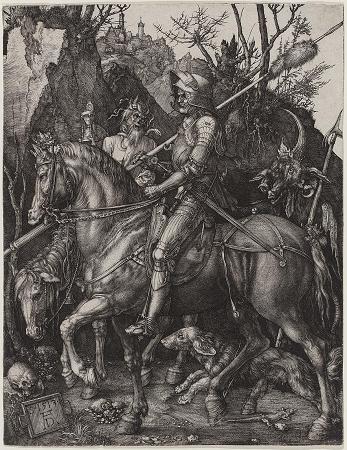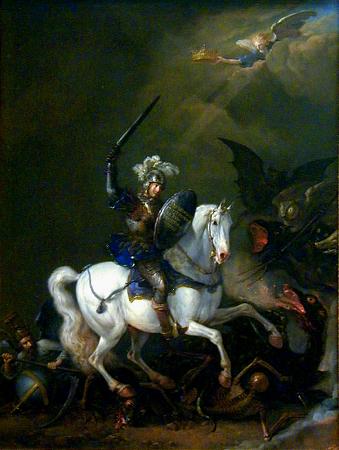Knight. A knight is a man granted an honorary title of knighthood by a monarch, bishop or other political or religious leader for service to the monarch or a Christian church, especially in a military capacity. Historically, in Europe, knighthood was conferred upon mounted warriors. During the High Middle Ages, knighthood was considered a class of lower nobility. By the Late Middle Ages, the rank had become associated with the ideals of chivalry, a code of conduct for the perfect courtly Christian warrior. Often, a knight was a vassal who served as an elite fighter, a bodyguard or a mercenary for a lord, with payment in the form of land holdings. The lords trusted the knights, who were skilled in battle on horseback. Knighthood in the Middle Ages was closely linked with horsemanship from its origins in the 12th century until its final flowering as a fashion among the high nobility in the Duchy of Burgundy in the 15th century. This linkage is reflected in the etymology of chivalry, cavalier and related terms. The special prestige accorded to mounted warriors in Christendom finds a parallel in the furusiyya in the Muslim world, and the Greek hippeis and Roman eques of classical antiquity. In the late medieval period, new methods of warfare began to render classical knights in armour obsolete, but the titles remained in many nations. The ideals of chivalry were popularized in medieval literature, particularly the literary cycles known as the Matter of France, relating to the legendary companions of Charlemagne and his men-at-arms, the paladins, and the Matter of Britain, relating to the legend of King Arthur and his knights of the Round Table. Today, a number of orders of knighthood continue to exist in Christian Churches, as well as in several historically Christian countries and their former territories, such as the Roman Catholic Order of the Holy Sepulchre and Order of Malta, the Protestant Order of Saint John, as well as the English Order of the Garter, the Swedish Royal Order of the Seraphim, and the Royal Norwegian Order of St. Olav. Each of these orders has its own criteria for eligibility, but knighthood is generally granted by a head of state, monarch, or prelate to selected persons to recognise some meritorious achievement, as in the British honours system, often for service to the Church or country. The modern female equivalent in the United Kingdom is Dame. The word knight, from Old English cniht, is a cognate of the German word Knecht. This meaning, of unknown origin, is common among West Germanic languages. Middle High German had the phrase guoter kneht, which also meant knight; but this meaning was in decline by about 1200. The meaning of cniht changed over time from its original meaning of boy to household retainer. Alfric's homily of St. Swithun describes a mounted retainer as a cniht. While cnihtas might have fought alongside their lords, their role as household servants features more prominently in the Anglo-Saxon texts. In several Anglo-Saxon wills cnihtas are left either money or lands.
more...





